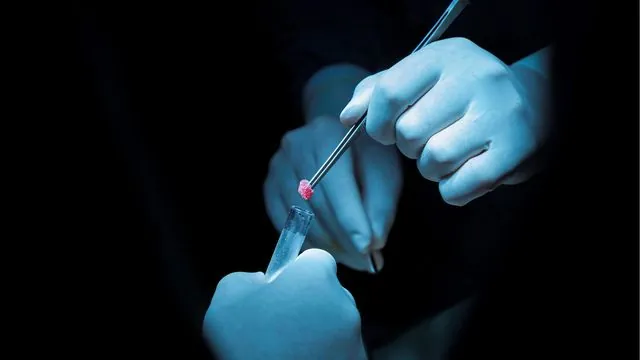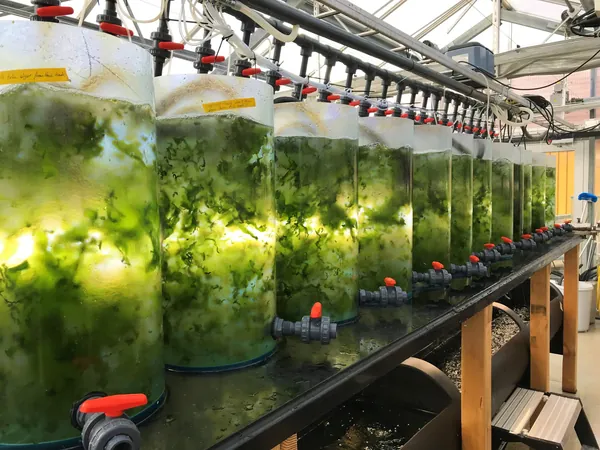
Revolutionizing Cancer Research: The Essential Role of Tissue Handling
2024-11-22
Author: John Tan
Revolutionizing Cancer Research: The Essential Role of Tissue Handling
In the ever-evolving field of cancer research, one critical aspect often goes overlooked: the handling of tissue samples. While scientists and researchers have dedicated countless hours to perfecting culturing conditions and experimental protocols, the integrity of the tissue itself is paramount. This realization is driving a new wave of innovation in the quest for effective cancer treatments.
The Crucial Insights from Surgical Oncology
Having transitioned from a background in surgical oncology to full-time research at the Lombardi Cancer Center in the United States, the importance of standardized tissue handling became strikingly clear. When a tumor is excised, many assume that the tissue is stable, but in reality, it begins to degrade almost immediately due to ischemia, which affects its molecular properties. This degradation can lead to lost insights in drug discovery, thereby jeopardizing potential breakthroughs in therapies.
Bridging the Gap—A Standardized Approach
At a glance, the traditional hospital workflow pits surgeons and pathologists' responsibilities against one another. While surgery focuses on successfully removing the tumor, the subsequent analysis happens without real-time oversight of the tissue integrity. This lack of accountability creates a gap that can compromise valuable samples. It became essential for companies like Indivumed, based in Hamburg, to take the initiative in making sure that tissue samples are handled with care and processed promptly, so the biological integrity is preserved.
Indivumed addresses these gaps by deploying trained personnel to surgical centers around the globe, ensuring that the tissue is collected and processed using standardized methods. This simple yet effective strategy saves millions of dollars in drug discovery by enhancing the quality of the samples used, thereby minimizing avoidable risks.
However, the journey to implementing these processes in hospitals isn’t without challenges. Financial constraints and the reluctance of medical professionals to adapt to new standards pose significant obstacles. To foster widespread adoption, Indivumed initially offered free access to its biobank and, more recently, has begun leveraging data sharing to help hospitals conduct their own meaningful research.
Data Validity and Multiomics in Cancer Research
Recent groundbreaking studies have shown that a staggering number of potential therapeutic targets can be overlooked if tissue is not collected in a standardized manner. The oncology field has finally begun to recognize that the preservation of tissue is not merely about saving samples; it is about generating reliable data to fuel innovation and discoveries in cancer treatments.
In this context, the rise of "multiomics" emerges as a game changer in cancer research. This holistic approach entails integrating data from DNA, RNA, proteins, and phosphoproteins. Unfortunately, many in the scientific community have misinterpreted what constitutes "multiomics," often focusing on a limited dataset rather than an integrated analysis.
Contrarily, at Indivumed, we utilize whole-genome sequencing alongside comprehensive transcriptome, miRNA, proteomics, and phosphoproteomics analyses. By examining both tumor and normal tissue collected with minimized ischemia time, we identify new therapeutic targets that other methodologies may overlook.
A Vision for the Future of Precision Medicine
As we continue navigating the complexities of cancer, our goal is to harness this multidimensional approach to discover novel, more effective therapies in shorter timeframes. The rich dataset we are accumulating will allow us to tailor treatments specifically to individual patients, heralding a new era in cancer care.
Achieving these ambitious aims requires flexibility, collaboration, and an acute awareness of hospital dynamics. Success in this field hinges on patience and a willingness to adapt, as we seek to redefine cancer treatment as we know it. With the momentum building and persistence as our ally, the future looks promising—a future where novel therapies can radically improve outcomes for cancer patients worldwide.
Stay tuned as we continue to explore the depths of scientific innovation and uncover the essential roles that quality tissue handling and comprehensive data analysis play in the fight against cancer. The revolution in cancer research has just begun!



 Brasil (PT)
Brasil (PT)
 Canada (EN)
Canada (EN)
 Chile (ES)
Chile (ES)
 España (ES)
España (ES)
 France (FR)
France (FR)
 Hong Kong (EN)
Hong Kong (EN)
 Italia (IT)
Italia (IT)
 日本 (JA)
日本 (JA)
 Magyarország (HU)
Magyarország (HU)
 Norge (NO)
Norge (NO)
 Polska (PL)
Polska (PL)
 Schweiz (DE)
Schweiz (DE)
 Singapore (EN)
Singapore (EN)
 Sverige (SV)
Sverige (SV)
 Suomi (FI)
Suomi (FI)
 Türkiye (TR)
Türkiye (TR)